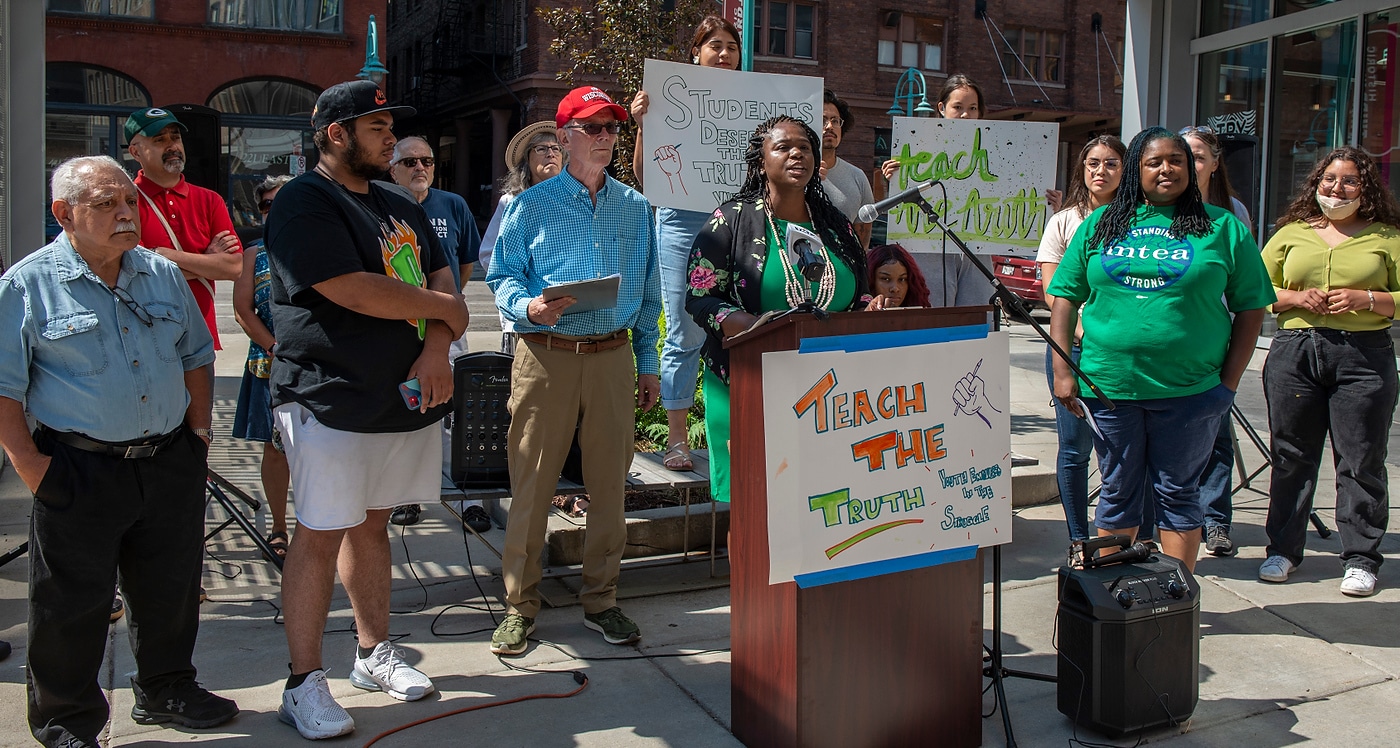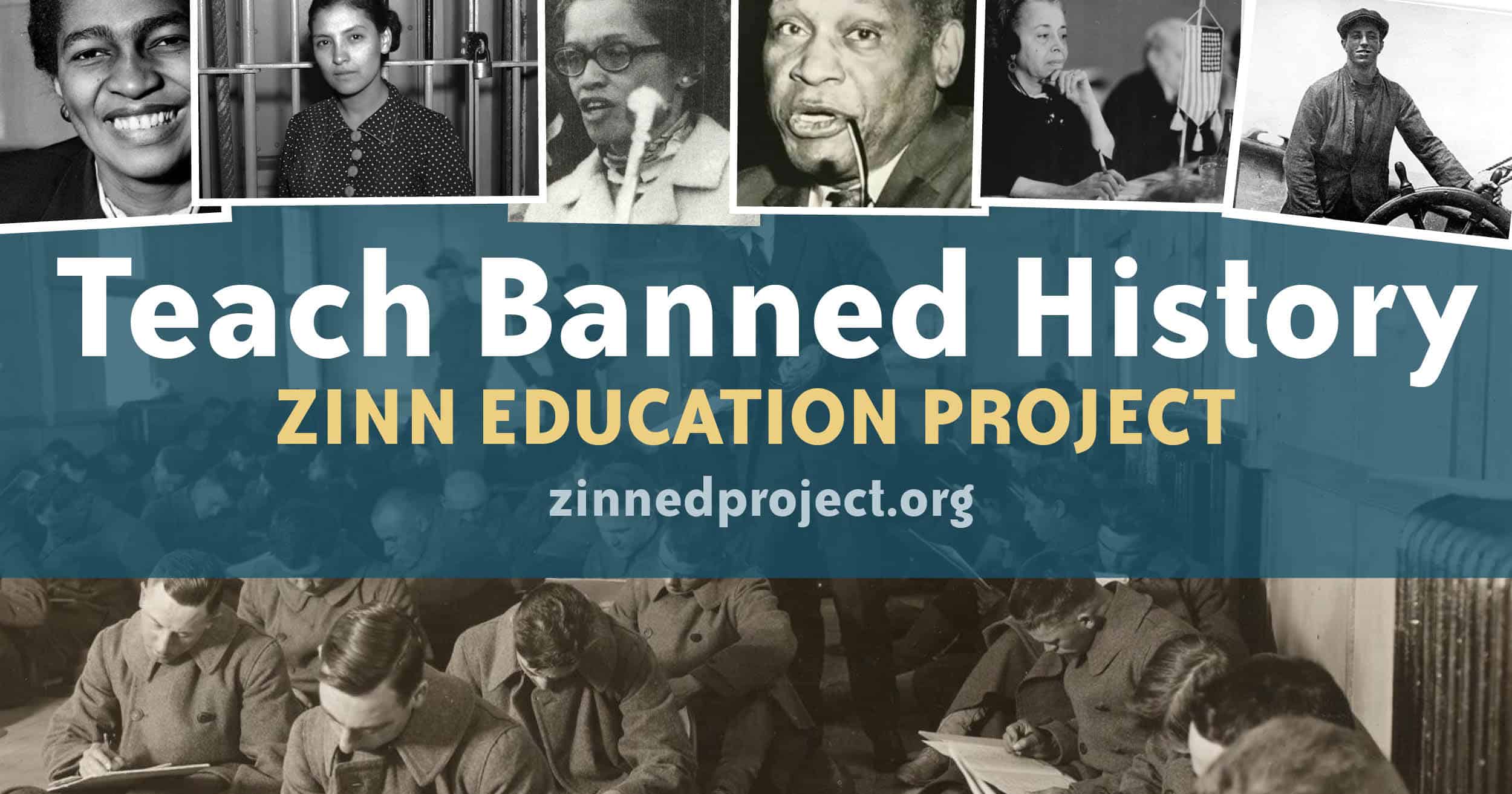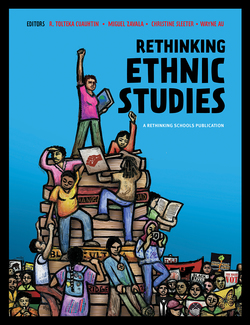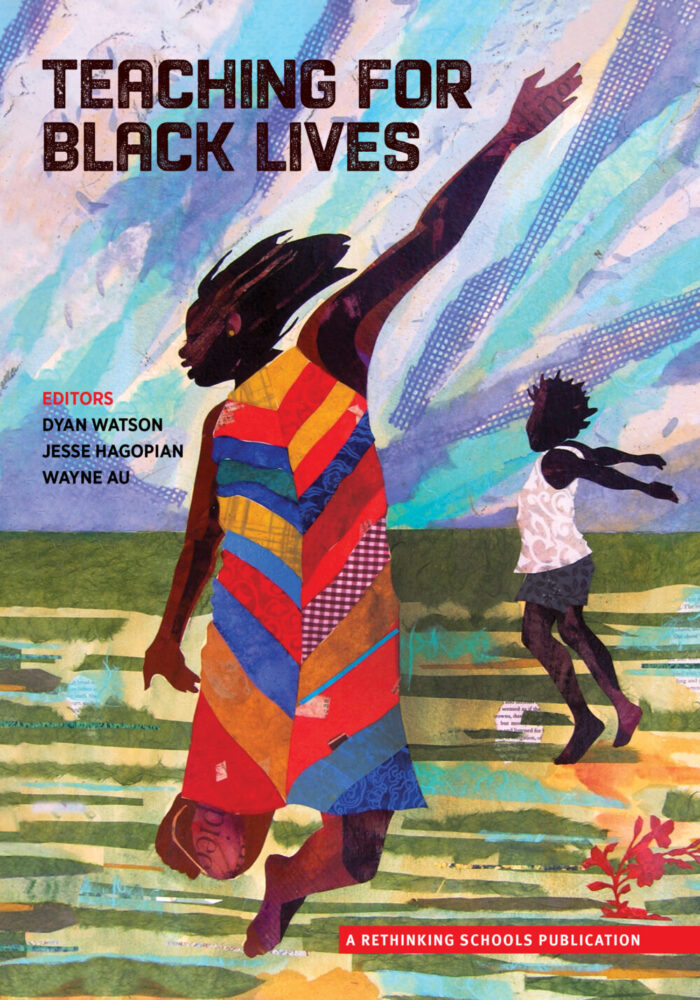An Open Letter to the College Board and Social Studies Teachers
March 2, 2023
As African American History teachers in Philadelphia, where African American History has been a required course since 2005, we express our deep disappointment that the College Board bowed to political pressure from conservative ideologues to whitewash its new AP African American Studies course. Many of us hoped that the AP course could provide for students nationally what we already experience: The teaching of African American history and the discussions of racism and resistance that not only allow Black students to see themselves in the curriculum — but give all students the opportunity to grapple with how our racist past has shaped, and continues to shape, the world around them. Students learn how people have organized to shape a more just future; drawing inspiration and joy from the literature, the arts, culture, and community.
Although the College Board insists that the changes to the course were not in response to political pressure, many of the authors, terms, and topics removed or made optional, were those that conservatives raised objections to. Nor did the College Board initially defend the course in the face of the Florida governor’s attacks. More importantly, many of the authors the College Board removed from their curriculum, are central to the field of African American studies. It is hard to imagine a robust college level course without them. As high school teachers, we know that when a subject in an AP course is made “optional,” that means it will not be on the AP test and therefore most teachers will not spend their limited time teaching it. From reparations to Black Lives Matter, the subjects the College Board deemed optional are central to discussing African American history and its relevance for today.
Honestly telling the history of Black people in this country requires engaging with Critical Race Theory — not acquiescing to those who stereotype and oppose it. Educator Gloria Ladson-Billings has pointed out that Critical Race Theory is not a conclusion, but a question: What accounts for the persistence of racial inequality? This is a question that needs to be at the heart of any African American studies course. Or as Robin D.G. Kelley, one of the removed authors, recently put it, “Black studies is supposed to be an epistemological break, that’s why it’s dangerous — because it actually wants to try to figure out a way to make this country not racist.”
We are not surprised by the College Board’s refusal to challenge these racist attacks on teaching the truth about this country. Indeed, perhaps it was naïve to expect much from an organization that continues to defend its SAT — a test born in the Eugenics movement that continues to measure wealth, privilege, and whiteness — as an accurate measure of students’ aptitude.
Nevertheless, we had hoped that the College Board’s attempt to create an AP African American studies course represented a departure. Sadly, our hopes seem misplaced. The College Board’s announcement of the course revisions on the first day of Black History Month, the same day as Tyre Nichols’ funeral in Memphis, is insulting. It reveals a complete lack of understanding for how racism manifests today.
We echo the demands made by higher education faculty and administrators in the field to restore the integrity of the AP African American Studies course. We acknowledge that in some high schools without any African American studies offerings, the College Board’s course may seem like a step forward. But barring any reversal from the College Board, many of us will not be implementing this watered down version and we encourage teachers across the country to develop their own course that includes the authors and topics the College Board has removed.
Signatories
- Freda Anderson, Academy at Palumbo
- Ryan Bell, Thomas Alva Edison High School
- Nick Bernardini, Samuel Fels High School
- Clarice Brazas, Academy at Palumbo
- Mohamed Camara, Philadelphia Learning Academy – South
- Jeffrey Camp, George Washington High School
- Dominic Castelli, Edison High School
- Edith Clark, Kensington High School
- Caitlin Clarke, Roxborough High School
- Timothy Conley, Frankford High School
- Kyle Coonelly, Northeast High School
- Marian Cronin-Connolly, Strawberry Mansion High School
- Áine Dougherty, William L. Sayre High School
- Theresa Eck, Academy at Palumbo
- Adam Fein, A. Philip Randolph Technical High School
- Frederick Firmani, Northeast High School
- Kevin Garcia-Ramirez, School of the Future
- Stacy Hill, Northeast High School
- Joshua Jablonski, Horace Furness High School
- Brittni Jennings, Constitution High School
- Dahlia LaBan, George Washington High School
- Mark Karcz, The U School
- Sarah Kenney, Olney High School
- Elaina King, Olney High School
- Brad Layman, Philadelphia Virtual Academy
- John Leary, Bodine High School for International Affairs
- Jared Mahoney, Hill-Freedman World Academy High School
- Erin Mandzak-Heer, The U School
- Robbie Marsden, Vaux Big Picture High School
- Jonathan McClintock, West Philadelphia High School
- Monique McKenney, Central High School
- Sean O’Neil, Philadelphia High School for Girls
- Yuji Okamura, W.B. Saul High School
- Nick Palazzolo, Central High School
- Keeler Park, Philadelphia High School for Girls
- James Peterson, W. B. Saul High School
- Samuel Reed, The U School
- Kathryn Reini, Benjamin Franklin High School
- Keziah Ridgeway, Northeast High School
- Meagan Rubino, School of the Future
- Adam Sanchez, Central High School
- Sharahn Santana, Parkway Northwest High School
- Shila Scott, Thomas Alva Edison High School
- Erica Stefanovich, Lankenau Environmental Science Magnet High School
- Michelle Suarez, Abraham Lincoln High School
- Elizabeth Taylor, Julia R. Masterman High School
- Joseph Tetreault, George Washington High School
- Jake Thornton, Abraham Lincoln High School
- Jade Tuff, Academy At Palumbo
- Lowell Ulmer, Frankford High School
- Lena Namnun, Frankford High School
- Dr. Robin Vann-Lynch, Franklin Learning Center
- Darcelle Void-Boston, Martin Luther King High School
- Kimberly Walker, Kensington Creative & Performing Arts High School
- Kevin Watkins, Franklin Learning Center
- Kate Weldon, Frankford High School
- Kiera Williams, The Philadelphia High School for Creative & Performing Arts
- Elizabeth Williams-Wesley, Central High School
- John Winters, Murrell Dobbins Career & Technical Education High School
- Hannah Zieve, Science Leadership Academy at Beeber
- Adam Zummo, Abraham Lincoln High School
For media inquiries, contact Adam Sanchez, adam.m.sanchez@gmail.com











Twitter
Google plus
LinkedIn